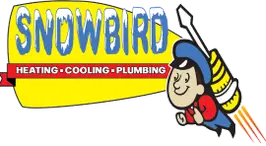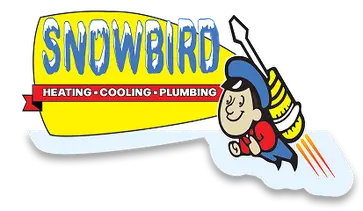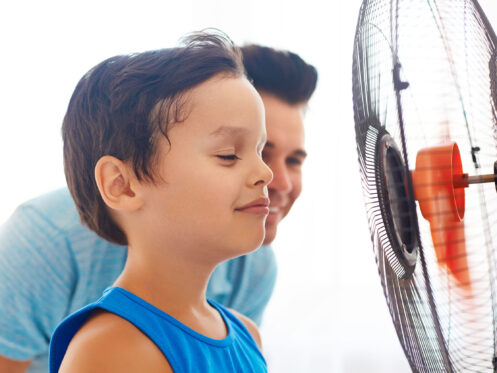Your air conditioner plays a vital role in keeping you comfortable, but it has a limited lifespan. The older it gets, the more it shows signs of wear and tear, leading to higher energy costs, inconsistent cooling, and frequent breakdowns. Knowing when to replace your air conditioner can save you money and ensure your home stays cool and comfortable throughout the hottest seasons of the year.
1. Frequent Breakdowns and Repairs
Your air conditioner frequently breaking down and needing constant repairs may be a sign it’s on its last legs. At some point, the cost of repairs might exceed at least half the cost of upgrading to a more efficient model. Replacing your air conditioner now allows you to have a reliable cooling system you can count on for another 10 to 15 years, if not longer.
2. Rising Energy Bills
An old, inefficient air conditioner can cause a significant spike in your energy bills. You may notice an increase, even if your daily habits haven’t changed to cause the bills to rise. As your air conditioner ages, it becomes less efficient and has to work harder to cool your home. A newer model can reduce energy consumption and lower your monthly utility expenses.
3. Inconsistent Cooling
You’re supposed to be able to count on your air conditioner to provide reliable cooling whenever you need it. If your air conditioner is blowing warm air or distributing the air unevenly, you’re not getting the performance you deserve. Inconsistent cooling can lead to discomfort and make it more challenging to enjoy a pleasant indoor environment. This can be especially concerning if you live with pets, kids, or older adults who are more sensitive to temperature fluctuations. If you’re facing these issues, upgrading to a new model can ensure consistent cooling in your home.
4. An Aging Air Conditioner
Air conditioners typically last 10 to 15 years, so if yours is older than that or approaching the end of that time frame, you may be ready for a replacement. Even with regular maintenance, an aging unit will lose efficiency. Eventually, it can struggle to meet your cooling needs. Upgrading to a new model today means you likely won’t have to worry about buying another unit for at least a decade.
5. Excessive Noise
Air conditioners are designed to make as little noise as possible to prevent disruption while still doing their job. An unusually loud air conditioner can indicate an internal problem, such as a broken fan. If the noise persists even after you’ve had a repair, the components may be deteriorating. A noisy unit is disruptive, especially if you work remotely and rely on its peaceful functioning so you can do your job without distractions. You can upgrade to a quiet, more efficient unit that will work better for your home while producing no racket.
6. Poor Indoor Air Quality
Your air conditioner also plays a crucial role in maintaining good indoor air quality. If you notice an increase in dust, allergens, or humidity, your air conditioner may not be properly filtering the air. Modern models have better filters to improve indoor air quality and create a healthier living environment. Replacing your system can reduce allergens and dust while enhancing air circulation and comfort.
7. Strange Odors
There shouldn’t be any strange odors coming from your air conditioner, so if there are, it’s usually a sign of an internal problem. For example, a burning smell can indicate an electrical issue that emits an unpleasant odor and presents a serious safety concern. If left unaddressed, electrical issues can worsen over time and pose a fire risk. A musty smell can be a sign of mold growth, which could lead to poor indoor air quality. Mold in the system can affect your health, especially if you have respiratory issues or allergen sensitivities. While repairs may temporarily fix the issue, depending on the severity, replacing your unit may be a better alternative to avoid recurring problems and ensure better air quality.
8. Short Cycling
An air conditioner is meant to blow cool air until it reaches your preferred temperature and then shut down. This is considered operating on a complete cycle. If the unit stops before it reaches the set temperature, it’s a sign of short cycling. This can be problematic as it results in wasted energy and higher utility bills, yet it never gets your home to the cool and comfortable temperature you want. Short cycling could happen for various reasons, including mechanical problems, but it often indicates an aging system working harder than necessary to meet demands. A new, more efficient unit will run smoothly without disruption.
9. Visible Damage
If your air conditioner shows signs of physical damage, such as corrosion, rust, or cracks, it may no longer be structurally sound. This visible damage is more than just cosmetic; it can affect the unit’s performance and efficiency. Repairs typically won’t be able to fix these problems, so replacing the system could be your best option for maintaining your home’s comfort during hot months.
10. Air Conditioner Won’t Turn On
An air conditioner that refuses to turn on is a sure sign that it’s probably time to replace the unit. It could be caused by various issues, including electrical problems. However, before assuming the system is faulty, make sure the air conditioner is plugged in completely and the breaker box is switched on and functioning correctly.
11. You’re Constantly Adjusting the Settings
Once you turn on your air conditioner, it’s supposed to reach and maintain a specific temperature without frequent adjustments. Constantly adjusting the thermostat or settings to achieve the desired temperature means your air conditioner may no longer be able to work properly. A new unit can offer precise control and advanced technology, allowing you to set it and forget it. The new system will sustain a consistent and comfortable temperature without constant manual intervention.
12. It No Longer Meets Your Cooling Needs
If you have increased the square footage of your home, such as having put on an extension, your air conditioner may no longer be able to accommodate your cooling preferences. The air in your home may feel warmer than it used to before the remodel, even if your unit previously worked perfectly.
To provide adequate cooling, your air conditioner needs to be a specific size that’s not too big or too small for the square footage. If it’s too small, it will continuously struggle to cool the expanded space effectively, which wastes energy and results in higher utility bills. We can help you choose a model that is the ideal size for your home and meets your cooling needs, so your entire space will feel comfortable.
Now is the ideal time to replace your air conditioner before the hot temperatures arrive. At Snowbird Heating & Cooling in Auburndale, FL, we offer air conditioner maintenance, repairs, and installations to ensure you stay comfortable throughout the warmest months. Contact us today to schedule an appointment to replace your old air conditioner with an upgraded model.



